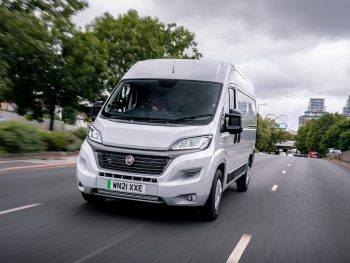A new consultation exploring plans for increased driving licence flexibility on electric vans in Great Britain is now open.

Launched as the countdown to the 2030 ICE phase-out continues, the consultation explores ways to continue and expand on current measures that mean alternative fuel commercial vehicles under 4.25 tonnes are no more difficult to drive than petrol or diesel models under the 3.5-tonne limit.
In 2018, the UK secured a derogation from the European Commission which allowed category B licence holders to drive alternatively fuelled goods vans with a gross weight of 4.25 tonnes, compared to the standard 3.5 tonnes entitlement.
The derogation was granted to avoid constraining payload for operators using cleaner, alternatively fuelled options, predominantly battery electric vehicles, which have an increased mass compared to their petrol and diesel counterparts due to the additional weight of their powertrain, for example the battery. Despite this extra weight, these vehicles are equivalent in function and appearance to large vans.
Typically, a driver must have a category C or C1 licence to operate a vehicle above 3.5 tonnes, increasing costs for the user. This includes upfront licence acquisition, medical examinations and training for a driver certificate of professional competence (DCPC) if the vehicle is intended to be driven for commercial use.
The Government recently announced that it has no plans to remove this derogation and it’s now consulting on potential measures to optimise this policy.
The consultation asks for views on:
- The training requirement for eligible vehicles to be driven on a category B licence
- Types of vehicles eligible for the derogation
- Towing for derogation-eligible vehicles
- Types of fuel eligible for the derogation
These proposals will only apply to England, Scotland and Wales.
The consultation closes at 11:45pm on 4 October 2022.
For more details, including how to respond, click here.

